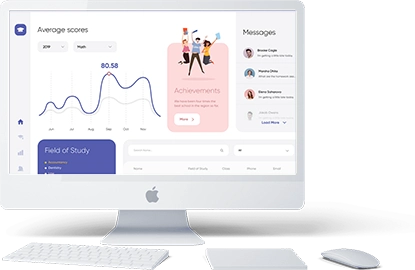Table of Content
Discover How Quality Real Estate Website Development Can Be a Game Changer
The real estate industry, traditionally reliant on physical interactions and paper-based processes, is undergoing a profound digital transformation. In 2025, a robust online presence is no longer a luxury for real estate businesses; it’s an absolute necessity.
Potential buyers and renters increasingly turn to the internet to begin their property search, making a well-designed and functional real estate website a crucial tool for attracting leads, showcasing listings, and building brand credibility. The business landscape is constantly evolving, with advancements in AI, virtual reality, and mobile technology reshaping user expectations and driving innovation in real estate.
Developers must stay abreast of these trends to create websites that are not only visually appealing but also offer seamless user experiences and powerful functionalities. Thus, exploring the technical aspects of real estate website development, focusing on the integration of essential features like MLS data, AI recommendations, and virtual tours, has become virtually necessary.
So what are developers seeking to build cutting-edge real estate websites in 2025 to do? This guide provides developers with a comprehensive overview of real estate website development in 2025, exploring the various types of websites, essential features, and advanced functionalities used by pro enterprise software development services shaping the future of online property platforms.
It will cover the core components of a successful real estate platform, from basic functionality to advanced features that enhance user engagement and drive conversions. By understanding the nuances of real estate website development, developers can create platforms that empower both buyers and sellers, revolutionizing the way properties are discovered and transacted. Let’s begin.
Real Estate Website Development – The Types of Real Estate Websites You Could Create
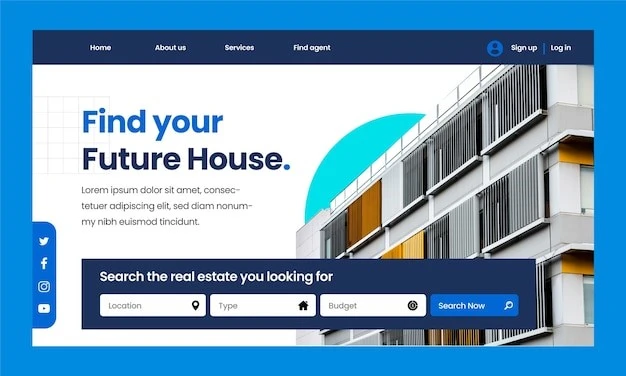
Real estate website development encompasses a wide range of platforms, each catering to specific needs and target audiences. But with different types, each section would require a unique style for its specific purpose, similar to learning how to build a real estate app like Rest Dubai easily.
Here are some key types of websites for real estate businesses.
Real Estate Marketplaces
These platforms aggregate listings from various real estate agencies and individual sellers, creating a comprehensive online marketplace for properties. They often include advanced search filters, interactive maps, and user review systems.
Marketplaces like Zillow and Realtor.com are prime examples, offering a broad spectrum of properties for sale or rent. These platforms rely heavily on data integration, robust search algorithms, and user-friendly interfaces to provide a seamless experience for buyers and sellers, making robust real estate app development a need for the industry.
Real Estate Rental Websites
These websites focus specifically on rental properties, providing listings for apartments, houses, and other rental units. They may include features like online applications, lease agreements, and tenant management tools.
Websites specializing in rentals address the unique needs of renters, offering detailed information about rental terms, amenities, and neighborhood characteristics. These platforms often integrate with background check services and online payment gateways to streamline the rental process.
Property Management Sites
These websites are designed for property management companies, providing tools for managing tenants, collecting rent, and handling maintenance requests. They often include features like online portals for tenants and landlords, as well as integration with accounting software.
These platforms focus on efficiency and automation, enabling property managers to handle day-to-day operations more effectively. They often include features for generating reports, tracking expenses, and communicating with tenants and landlords.
Property Listing Websites
These websites are created by individual real estate agents or agencies to showcase their listings. They often include high-quality photos, virtual tours, and detailed property descriptions.
Listing websites serve as a digital portfolio for real estate professionals, allowing them to highlight their expertise and attract potential clients. They often integrate with social media platforms and email marketing tools to expand their reach.
Why Does Your Business Need a Real Estate Website?
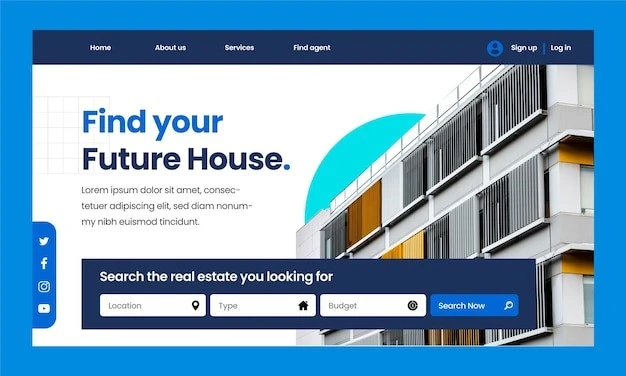
A real estate website is essential for modern businesses due to:
- Enhanced Visibility: A website allows real estate professionals to reach a wider audience, including potential buyers and sellers who may be located outside their immediate geographic area.
- Lead Generation: A well-designed website can capture leads through contact forms, property inquiries, and newsletter sign-ups.
- Brand Building: A website allows real estate businesses to establish a professional online presence and build brand credibility.
- 24/7 Availability: A website is accessible 24/7, allowing potential clients to browse listings and gather information at their convenience.
- Showcasing Listings: A website provides a platform to showcase listings with high-quality photos, virtual tours, and detailed property descriptions.
- Improved Communication: A website can facilitate communication with clients through messaging systems, contact forms, and online chat.
- Competitive Advantage: In today’s digital age, a strong online presence is essential for staying competitive in the real estate market.
What Basic Features Must You Focus On in Real Estate Website Development?
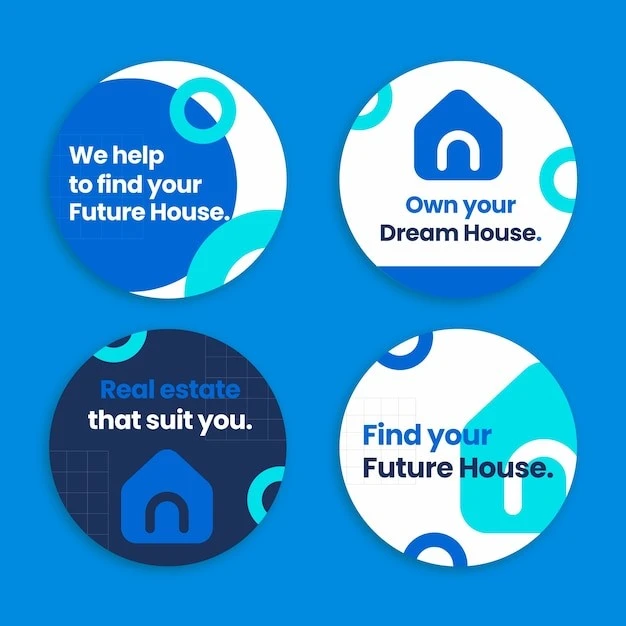
Now that you know why a real estate website is important, its time to know what goes into making one. When we talk about the cost to develop a real estate app like Property Finder (or a website), the extra and essential features that are incorporated into it determine the cost. Essential features for a real estate website include the following.
Multiple Listing Service Integration (MLS)
MLS integration allows websites to display up-to-date property listings directly from the MLS database. This ensures that users have access to accurate and current information.
MLS data integration requires careful consideration of data security and API compatibility. Developers must ensure that the website can handle large volumes of data and maintain data integrity.
Advanced Search Filters
Advanced search filters allow users to refine their property search based on criteria such as price, location, property type, and amenities. This enhances the user experience and helps users find properties that meet their specific needs.
Implementing robust search filters requires a well-structured database and efficient search algorithms. Developers should focus on creating a user-friendly interface that allows users to easily customize their search criteria.
High Quality Media Library
High-quality photos and videos are essential for showcasing properties and attracting potential buyers. A media library should allow for easy uploading, organization, and display of multimedia content.
Optimizing images and videos for web performance is crucial for ensuring fast loading times. Developers should use compression techniques and content delivery networks (CDNs) to deliver media content efficiently.
Messaging System
A messaging system allows users to communicate directly with real estate agents or property owners. This facilitates inquiries, scheduling viewings, and negotiating deals.
Implementing a secure and reliable messaging system requires careful consideration of data privacy and user authentication. Developers should prioritize user experience and ensure that the messaging system is easy to use.
Advanced Features to Help You Enhance Your Real Estate Website Development
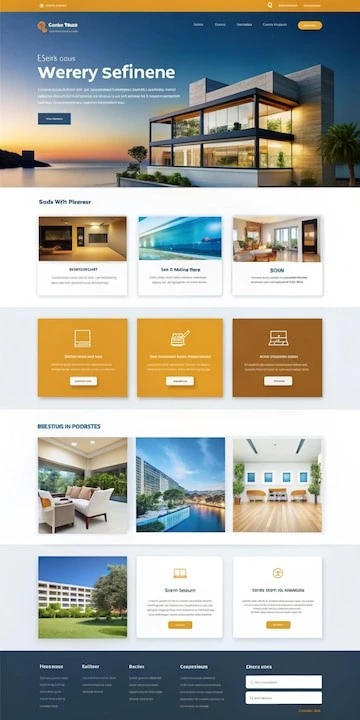
While basic or essential features make a real estate website functional, it’s the advanced features that can set a real estate website apart from the competition. But knowing what to add to your real estate website development plan can be big hassle.
Here are some advanced features that can make your real estate websites future-proof.
AI Recommendations for the Perfect Properties
AI algorithms can analyze user preferences and browsing history to provide personalized property recommendations. This enhances the user experience and increases the likelihood of finding suitable properties.
Implementing AI recommendations requires a robust data analytics infrastructure and machine learning algorithms. Developers should focus on creating accurate and relevant recommendations that meet user needs.
Virtual Tours
Virtual tours allow users to explore properties remotely, providing an immersive and interactive experience. This is particularly valuable for out-of-town buyers or renters.
Creating high-quality virtual tours requires specialized equipment and software. Developers should ensure that virtual tours are seamlessly integrated into the website and provide a smooth user experience.
Featured Listings
Featured listings allow real estate agents to highlight specific properties and attract more attention. This can increase the visibility of listings and generate more leads.
Implementing featured listings requires a flexible content management system (CMS) that allows agents to easily manage and update featured properties.
Realtor Calendars
Realtor calendars allow users to schedule property viewings and appointments online. This streamlines the scheduling process and improves communication between agents and clients.
Integrating realtor calendars with other scheduling tools and CRM systems can further enhance efficiency and productivity.
General Property Calculator with Tax Percentage Included
A property calculator allows users to estimate mortgage payments, property taxes, and other expenses. This provides valuable information for potential buyers and renters.
Implementing an accurate and user-friendly property calculator requires careful consideration of financial formulas and tax regulations. Developers should ensure that the calculator is easy to use and provides reliable results.
Conclusion
Real estate website development in 2025 demands a blend of technical expertise, user-centric design, and a deep understanding of the real estate market. By focusing on essential features like MLS integration, advanced search filters, and high-quality media, and by incorporating advanced functionalities like AI recommendations and virtual tours, developers can create powerful platforms that transform the real estate experience. As technology continues to evolve, real estate websites will become even more integral to the industry, providing seamless and efficient solutions for buyers, sellers, and renters alike.

Empower your digital journey with StruqtIO - Your dedicated partner for cutting-edge custom software development, innovation, and digital transformative solutions. Harness the power of technology to elevate your business and redefine your digital landscape today.

